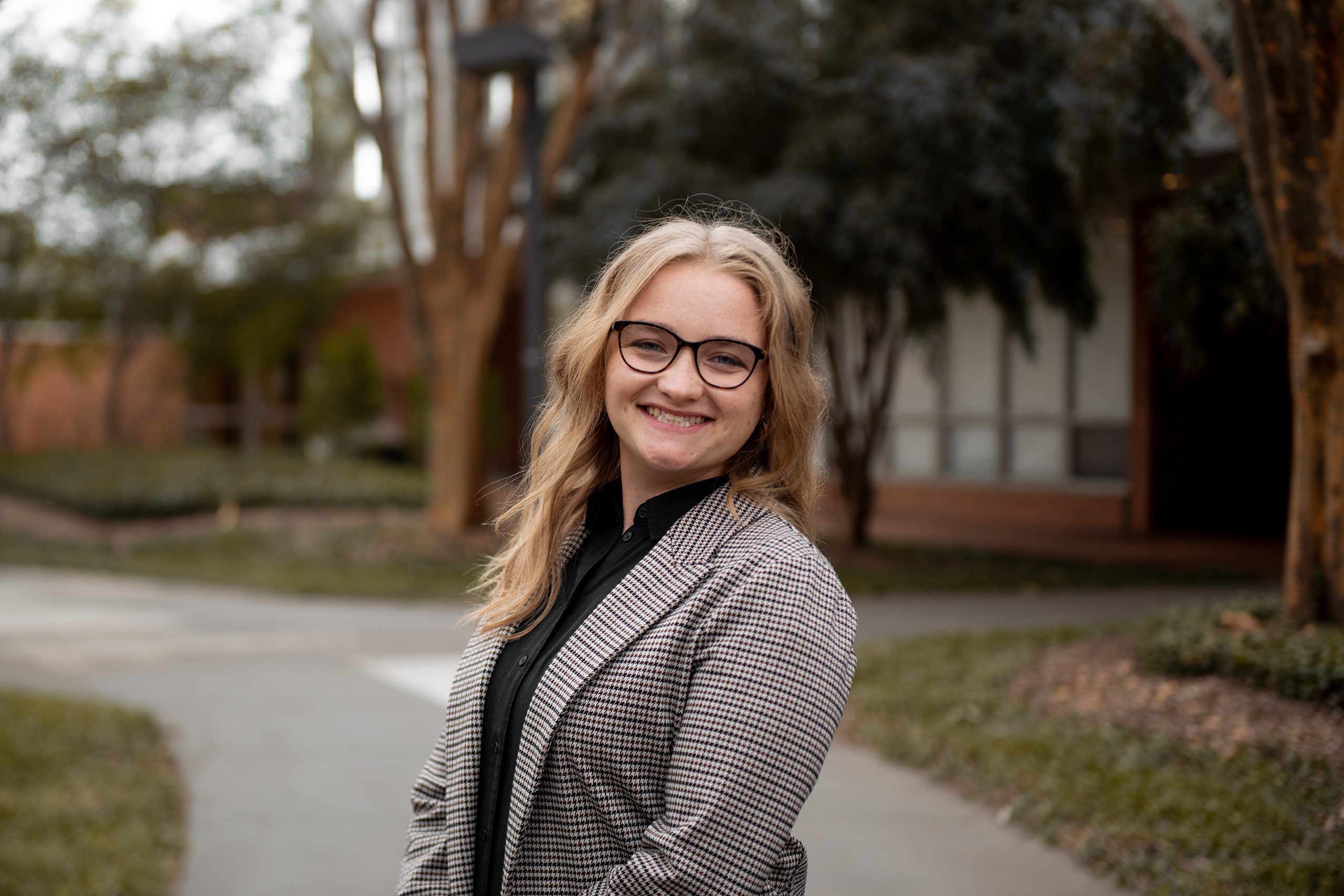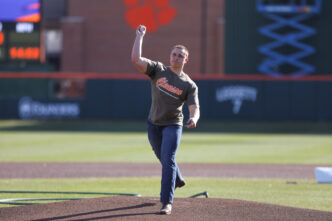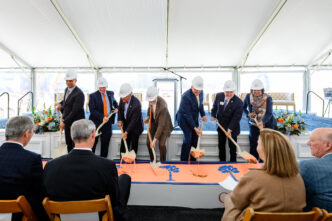Sara Kennedy, a doctoral student of Clemson’s Ph.D. in Planning, Design and the Built Environment, recently received the 2023-2024 Arthur N. Tuttle Jr. Graduate Fellowship in Health Facility Planning.
The Tuttle fellowship is a grant from the American Institute of Architects (AIA) Academy of Architecture for Health (AAH) to support Kennedy’s dissertation research. According to the AIA AAH, the fellowship aims to advance graduate students’ knowledge of planning and design for healthcare environments, resulting in a research-informed design approach and proposal.
“This fellowship means so much to me and my research and will significantly impact the quality of this study moving forward,” Kennedy said. “Academically, this fellowship will mean I can create better-informed, more rigorous research and produce more reliable results for designers and researchers looking to develop operating rooms for robotic-assisted surgery.”
Kennedy’s research examines how the layout of operating rooms impacts the workflow and team member communication during robotic-assisted surgery. The study specifically looks into the impact of spatial challenges of operating rooms and looks to establish basic design recommendations and guidelines to support the design of operating rooms that integrate evolving robotic systems and operating room work system processes.
According to Kennedy, robot-assisted surgery has been shown to reduce hospital stays, reduce complications, and improve the performance of more delicate tasks compared to laparoscopic and open surgeries. Additionally, she explained that many existing operating room designs cannot support the changing workflows or spatial needs of robotic equipment, which results in increased workflow disruptions and an increase in operating time duration.
“Sara’s dissertation will fill a critical gap in the field related to designing operating rooms that support robotic-assisted surgeries,” explained Anjali Joseph, director of the Center for Health Facilities Design and Testing. “Sara has already built a strong foundation in her topic through her work on a National Science Foundation-funded grant on the future of work in robotic-assisted surgery with Dr. Jackie Cha in industrial engineering.”
Joseph explained that the grant from the AIA AAH will provide national recognition for Sara’s work and will enable her to share her work with the healthcare design community at the next Healthcare Design conference in 2024.
Kennedy received $8,600 through the fellowship to support the completion of her dissertation study.
“I am most excited to be able to focus less on the financial means of completing this study and more on strengthening the research design and digging deep into this project,” she said. “It is an honor to be considered, let alone be awarded this fellowship. I am looking forward to being able to create and contribute practical design principles to aid in designing operating rooms with robotic systems through the support of the Tuttle Fellowship.”







